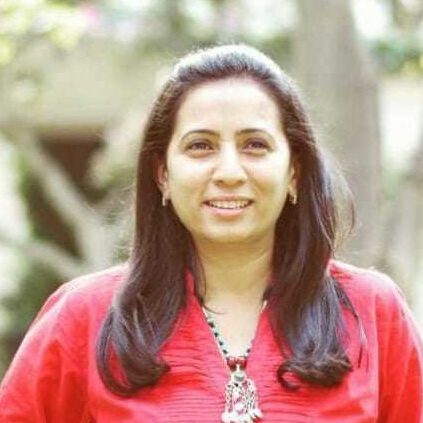Women role models needed in tech, say top tech communicators
PR Insight
Paarul Chand
In India, as well as globally, attention on gender diversity has sharpened. The first India Survey by Global Women in PR suggests that a lack of role models for women in senior leadership positions is a barrier to women staying on and building their careers.
Therefore this International Women's Day we speak to a range of women communicators in tech. Their experiences break the perception of lack of women in tech.
Women in STEM roles
According to a 2019 study by AnitaB.org, 34% of the tech workforce in India are women. A much higher figure than seen in Europe and the US. However, the drop out rates from the workforce at the junior and middle level is exceptionally high at 50% (an Asia wide trend).
Sarah Gideon, senior communications professional in a tech driven firm, agrees that, "As the years' progress; women start dropping out of the workforce for a multitude of reasons.
"The only way we can change perception is to celebrate the successes of women in the sciences repeatedly and creating role models of those who have had the perseverance to succeed.
"It's not only the ones who achieve greatness such as NASA astronaut Christina Koch, but also the women who balance work and other responsibilities to show up every day."
In India, family support becomes a crucial cultural environment that can enable or stop you from pursuing a career.

Surangana Chatterjee, senior director, Consumer Technology, India at Genesis BCW says, "The question to ask yourself is: Are you geared up to face the challenges that a career presents to you, and this is a question that is not limited to the field of STEM.
While you get yourself industry ready, I strongly believe (as a working mother in the field of technology communications) that your family ecosystem pays a huge role in your career advancement. So, co-opt them so that they have the shared vision of seeing you as a successful leader in the STEM field and support you at every stage."
Tackling tech communication

Shruthi Bopaiah, head client engagement and communications, Bridgeweave says women have bought into the myth that they can't embrace STEM as they just aren't enough role models to demonstrate otherwise. Bopaiah's own journey shows a transition from being an HR and internal communications professional to her current role where along with communications, she also handles a tech-led project for a Bridgeweave client.
Sharing her current work definition, she says, "In a startup, there is much more openness as they want greater diversity to come in. I am currently also playing an account management role, understanding the tech involved and doing an internship, on a client project with a small deliverable. But that hands-on pace gives you a whole other perspective on technology and its use."
Sometimes the level of understanding needed for the tech part of the business can be daunting. Chatterjee has a simple hack for that advising, "Answer the classical question for consumers—what’s in it for them?
I recall a campaign we ran for HP years back called “The Computer is Personal Again” that focused changing how we perceived PCs then as a commodity that was sold on speeds and feeds, and instead focused on how computers had become essential to our lives and truly the most personal thing we owned. The challenge and opportunity rest in the cluttered market to break the technology jargon and simplify it or humanise it for users."

Gideon says what inspires her is, "The opportunity and the very satisfying aspect of being able to break things down into easily understandable bits, that can showcase the incredible opportunity and potential that new technologies enable to larger audiences. It's also gratifying personally, to be able to keep myself abreast of what is new and upcoming."
Gideon adds that "The challenge is getting colleagues to partner in breaking it down, and it becomes a bit of a situation where an audience is seen as a reflection of technical savviness and getting a buy in to simplify information takes a considerable effort."
Bopaiah says her approach is to, "Not be an absolute techie, but understand how the tech is being applied, simplifying the messaging for all your stakeholders from the end-user to the funding world. Make that extra effort to keep asking questions, be curious."
Sanchi Shukla, strategy director, Meltwater South Asia agrees saying, "It is really exciting to understand the data set which is important for a future or a current client of ours and walk them through the value brought in by our media intelligence and artificial intelligence. The use-cases can be as diverse as competitor benchmarking, influencer analysis, social media listening, or PR measurement!"
Raising women's participation in STEM led firms

There is a strong perception that women do not do well in STEM fields. However, Shukla says, "I'm fortunate to work for an organisation that never perpetuated this myth. 75% of the directors and 60% of the management team at Meltwater India are women. Globally, social expectations to balance work and cultural roles lead to a high rate of attrition for women in demanding careers, STEM or otherwise, but I believe the success of the current generations will help reduce and eventually forgo this myth."
Chatterjee feels to inspire women to join STEM led fields look to history, "History is the best proof! As you look back, you see umpteen examples of women excelling in the tech field. From Marie Curie who went on to win the Nobel Prize for her work in the field of science, to stalwarts like Sheryl Sandberg and Meg Whitman, leaders of global tech giants."
She adds, "I have had the fortune of interacting with inspiring women leaders in the field of technology in India, such as Debjani Ghosh (NASSCOM) and Neelam Dhawan (HP, Microsoft), who have such a strong vision. They have orchestrated an organization towards making technology not just accessible to the larger population but ensuring how technology can empower them and make their everyday lives richer.
I also see the real-life example of my sister who has a career in the tech field as an app developer—cracking codes and hackathons each day."
If you enjoyed this article, you can subscribe for free to our weekly event and subscriber alerts.
Featured

PR professionals share their views on journalists publicly calling them out on story pitches

Auto blogger renders unconditional apology to Value 360 for defamatory posts

Hottest Indian startups of 2020, Paytm, Dreams 11 lead the charge: Wizikey Report




